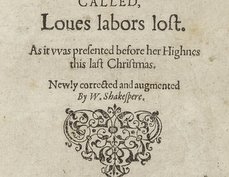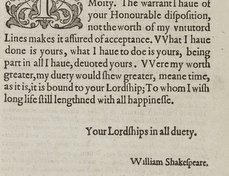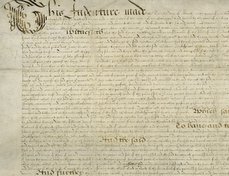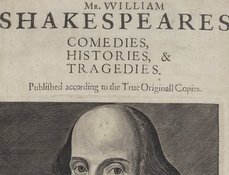Shakespeare Documented is still growing! Currently, two thirds of the descriptions and 98% of the images are available in the resource. Descriptive text will continue to be added, updated and expanded. Visit our About page to learn more about the project scope.
EXPLORE THE DOCUMENTS BY CATEGORY
SHAKESPEARE DOCUMENTED IS STILL GROWING
Descriptive content and transcriptions will continue to be added, updated and expanded. Check back for regular updates!
Filter the documents by tag(s)
December 20, 1564
The outbreak of plague in July 1564, meant that fewer members of the Corporation attended its subsequent meetings. Attendance reached its lowest point on December 20, shown here, when only 13 were present.
January 10, 1564
The Corporation elected two chamberlains in September or October each year to manage its financial affairs. One chamberlain was responsible for drawing up the account for the following twelve months, while the other checked it.
September 27, 1564
On September 27, 1564, John Shakespeare was one of ten capital burgesses included in a list of those witnessing an order.
April 26, 1564
The earliest reference to William Shakespeare appears in the parish register for Holy Trinity Church in an entry for his baptism on April 26, 1564.
July 4, 1565
The Corporation was made up of 14 aldermen, who were named in the town’s 1553 charter of incorporation, and 14 capital burgesses who the aldermen elected to assist them.
February 15, 1566
In the autumn of 1563, John Taylor and John Shakespeare completed their two-year term of office as chamberlains. William Tyler and William Smith, haberdasher, were appointed to take their place.
October 13, 1566
Gilbert, John and Mary’s fourth child, was baptized on October 13, 1566, according to the Holy Trinity Church parish register. Next to the entry, an “X” added by a later hand highlights its significance.
September 11, 1566
In late August 1566, a local ironmonger named John Page brought a charge of detinue, or wrongful taking of goods, against Richard Hathaway, a husbandman (a term indicating a farmer of a modest landholding) from nearby Shottery. An undated precept (Minutes and Accounts, ii, p.
September 4, 1568
Under the terms of Stratford-upon-Avon’s 1553 charter of incorporation, every September the fourteen aldermen and fourteen capital burgesses elected one of their number to serve as bailiff for the coming year.
December 4, 1568
Stratford-upon-Avon's 1553 charter of incorporation stipulated that the bailiff, acting as justice of the peace, would preside over a court of record held fortnightly (every two weeks), which would handle civil claims of up to £30.



















